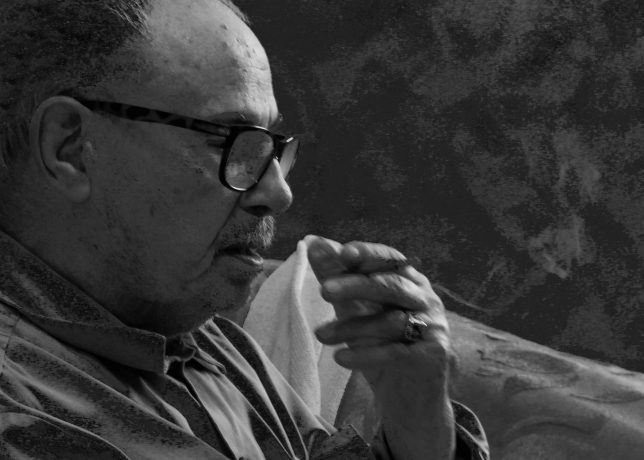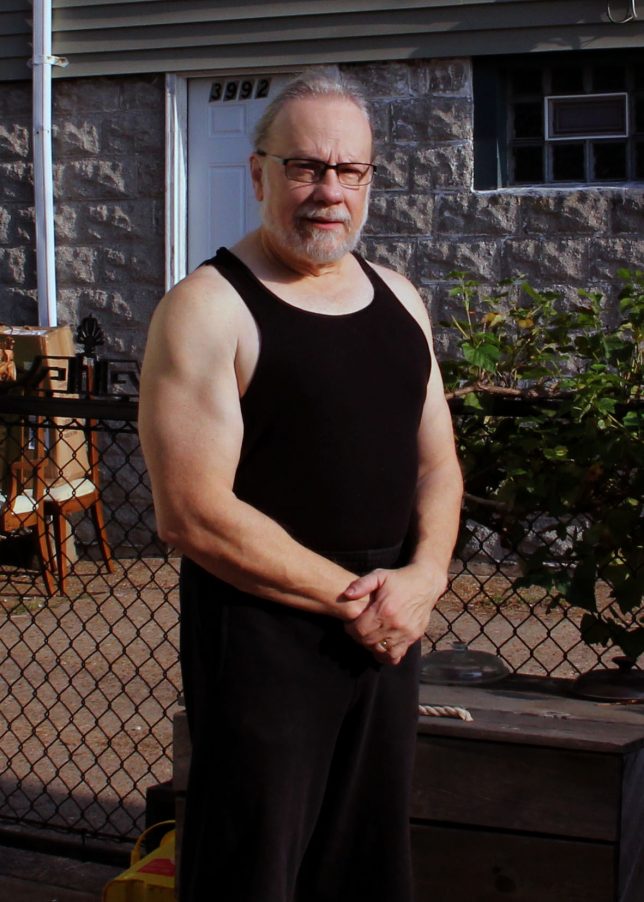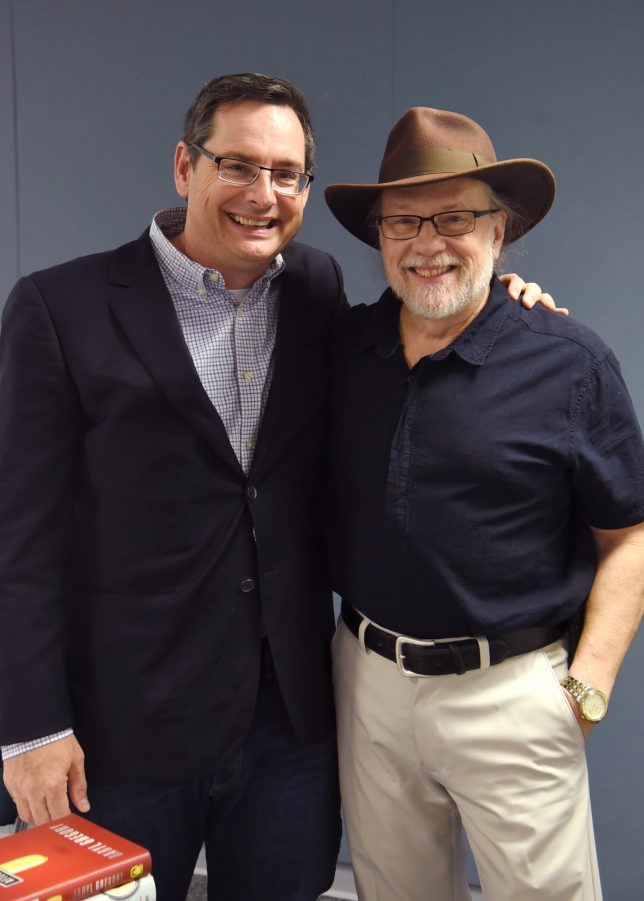I have been wrestling with all the recent allegations of sexual harassment and assault boiling up like magma from a caldera. The image is apt—volcanoes can appear sedate, dormant, unthreatening for decades or even centuries, and then, suddenly, boom! Like that volcano, it does not mean there was never a problem before, only that we grew comfortable with its failure to express itself and assumed everything was fine.
Well, some people did.
The problem I’ve had, I will admit, has been incredulity. Knowing there are men in the world who behave this way is not quite the same as learning that those men and so many and for so long are like this, and it is a bit overwhelming.  And in some instances the temptation is great to make excuses. Circumstances, the times, “it was different back then”…  Personal heroes melt into their own clay and we’re left trying to reconcile the obvious and often real divide between what we perceive as the good done from the closed-door actions we are now learning about. How, we ask, can that person, who has done so much worthwhile work in the world, be someone who could do that to a woman?  And what does it say about the apparent good work?
What does it say about our judgment?
What, finally, do we do about something which seems as pervasive as air? Â Is this something we just have to put up with if we want things to get done in the world?
Overwhelming.
And, of course, we have the bizarre situation of a president guilty of the same behaviors who at various times has bragged about it.
Through all this, as well, is the real fear that one of the solutions that might be proposed and gain ground is the segregation of the sexes. Â Keep ’em apart. Â Obviously men can’t be trusted and women will always be vulnerable, and by so thoroughly mixing them up in situations where perhaps they ought not to be together—work, politics, schools, etc—we have somehow invited this.
Anyone with half a brain will immediately see that as not only unworkable but as offensive as the behavior such a proposal would purport to protect women from. Â Such a solution might be viable for five-year-olds, but it seems to me we live in a society that is already over-infantilized, especially in this area.
I grew up believing intrinsically that in matters of sex, women had the final say. Always. For me, forcing an issue was simply unthinkable. Nothing my parents ever said explicitly told me this, it was more a matter of…well, it was pervasive on a certain level. But my parents also offered the example of a man and woman who constantly respected each other and did nothing without the others consent. Furthermore, my father was not one of those who had some innate idea of “women’s work” that rendered him unwilling or incapable of doing anything in the house that needed doing. I saw no such gendered division of labor growing up in my home. Along with the movies and television I saw at the time, I came of age with an idea of women as…
I had no idea at the time. Certainly, upon entering adolescence, they became alien to me. Â This was also reinforced by many of the same givens that had shaped everything else. I had no idea, by age thirteen, how to talk to girls. Â This was aided by my grade school, which was parochial, and had, in retrospect, the unusual physical situation of two entirely separate playgrounds for the boys and the girls, separated by the very building. By seventh and eighth grade, a transgressive air attached to the boys sneaking to the other side and talking to Them through the chain-link fence that kept them isolated from us.
Then, too, was the whole hormonal thing and all the boys felt it keenly, this quite obvious transformation we had no idea how handle. The girls, of course, seemed to us to have it all in hand. They were very self-assured in their emerging sexuality and we guys, feckless and inarticulate as we were, could only watch and try to find a way to be cool while restraining a drool reflex.
Then high school, where dating really became a thing, and at which I was very bad. Â And of course it was another way of rating people—who went out with whom, how “well” you did, and so forth. Without much being stated bluntly, it became clear that those who did poorly at this ritual were somehow defective.
And for no discernible reason.
We do not, in this culture, have anything like formal adulthood rites. No one takes us in hand to teach us what we need to know. We expect parents to do this, but there is nothing universal, nothing agreed upon, and in too many instances parents choose to punt. Leaving us all to figure it out from the clues which, in some instances, are the equivalent of reading tea leaves.
(This is evermore difficult for anyone not traditionally cisgendered, who likely grows up being flatly told that their essential self is “wrong” or “obscene” or “broken” and the tea leaves get tangled with weeds.)
That so many of us come out as well as we do is a tribute to those elements of our culture that do serve and to our own sense of being.
It seems to me that we still inhabit a euphemistically-driven culture. One must “read the signs” regarding things no one is willing to state baldly. Most of us, I hope, have outgrown this, but when you look at some of the dialogues in play about rape that center on how a woman was dressed instead of on the brutality of her attacker, you have to wonder how much past this we are.  “Dress” is treated as a sign—not perhaps by the rapist but by the people who can’t quite accommodate the ugly dynamics of it who seek to find  reason to blame the victim.
(This is not something isolated to sex—during the height of the Sixties, with regards to riots, one heard it all the time that “if those people had been home where they belonged, the police wouldn’t have had to bash their heads in.” Â On campuses, “they should have been in their dorms studying instead of where they were.” Â And of course the whole issue of dress attended as well. Â But it is most egregious when it comes to our treatment of women who have been abused. Â We seem, collectively, unwilling to simply say that none of that is important. Â Well, some of us have that problem.)
I confess that I tried to find some way to intellectualize these behaviors by blaming the culture of Code Speak. Mixed signals, yes-no-maybe, and so forth.
No. Â This will not suffice.
I am perfectly willing to lay the blame on the perpetrators, even if I might be able to find reasons for their behaviors. Â But basically they are simply not adults.
A thirty-year-old man who consistently hits on teenage girls has an inability to deal with other adults.
A man who threatens a woman with her job in order to elicit sex from her is because he is a child with too much power incapable of dealing with others as equals.
A man who makes suggestive remarks to a coworker on the off-chance that she might take him up on it has no concept of appropriateness or confidence in his ability to interact as an adult.
I would go so far as to suggest that men like this really don’t treat other men well, either, but it comes out far less because the rules of male interaction are  bit more ritualized and, really, the sexual component in many instances is less present.  But if push comes to shove, these abusers have no regard for their male colleagues, either. An office full of such nascent sociopaths and arrested adolescents would be pure hell for anyone not a member of their “club.”
I could describe examples—a boss who thought it was outrageously funny to take his shirt off, fill his hand with soft-soap, and appear to the woman working that day with the declaration “See what you made me do?” A coworker who told me that he once thought his wife was cheating on him and was relieved to find out she wasn’t because otherwise he would have had to kill her, but then later when preparing for an out-of-town business trip with our employer gleefully anticipated “getting a little” when he was there. Â An earnest talk by an older acquaintance about how you couldn’t let women turn you down, that this was degrading not only to you but to men in general, and really,”they want it just as bad but they need an excuse”—but if you think about it you have heard this and seen it often.
Women have been complaining about Man Childs for decades. They define separate spheres of appropriate work, but fall down on maintaining even their own. Â The deficit in equal work. The petulance exhibited when they can’t play. Â It rests on a continuum.
All of this, though, comes down to a mindset that will not accept even the possibility of being told No. Â The circumstances, the power differentials, the absurdity of some of the behavior, all of it might be avoided by a simple practice of dealing openly with each other in situations where both parties are free of ancillary obligations and can walk away. “No, thank you.” Â But for certain people, that no is intolerable. Â So they use blackmail, threat, physical force. Â Euphemism. Â Turn it into a joke. Â Anything but be an adult who knows how to accept being turned down.
Because, of course, this isn’t about relationships—it’s about power. Again.
And I have to say, if you are willing to subvert the autonomy of an individual for your personal gratification, you have no business leading others in any capacity. Â I don’t care if you’re a CEO, a senator, the director of a movie or a nonprofit, or the president. Â After due consideration, if you can’t see other people as people, then…well, I’m afraid I have to tell you no.
Try to be an adult about it when you lose your position. Â I know. Â That’s hard. Â Probably everything you’ve done to get to your position has been so you didn’t have to be an adult.
Oh well.













